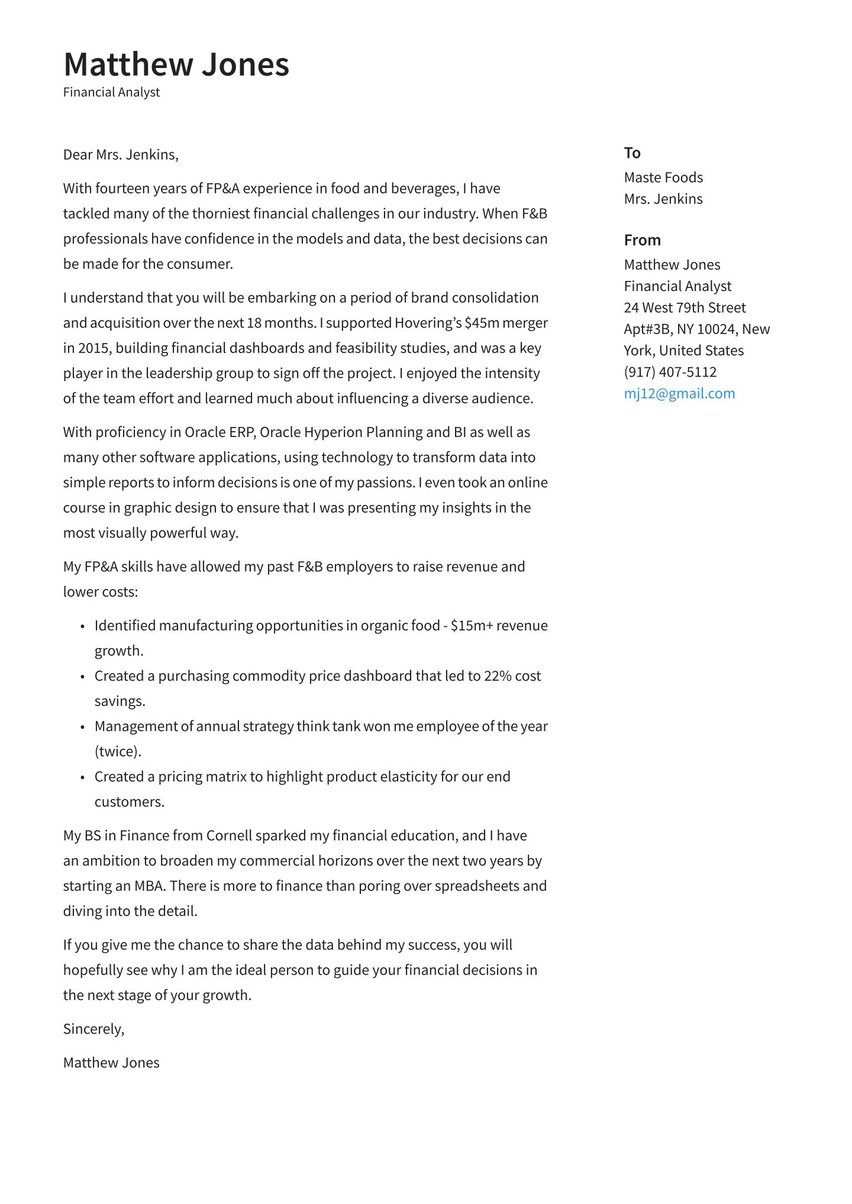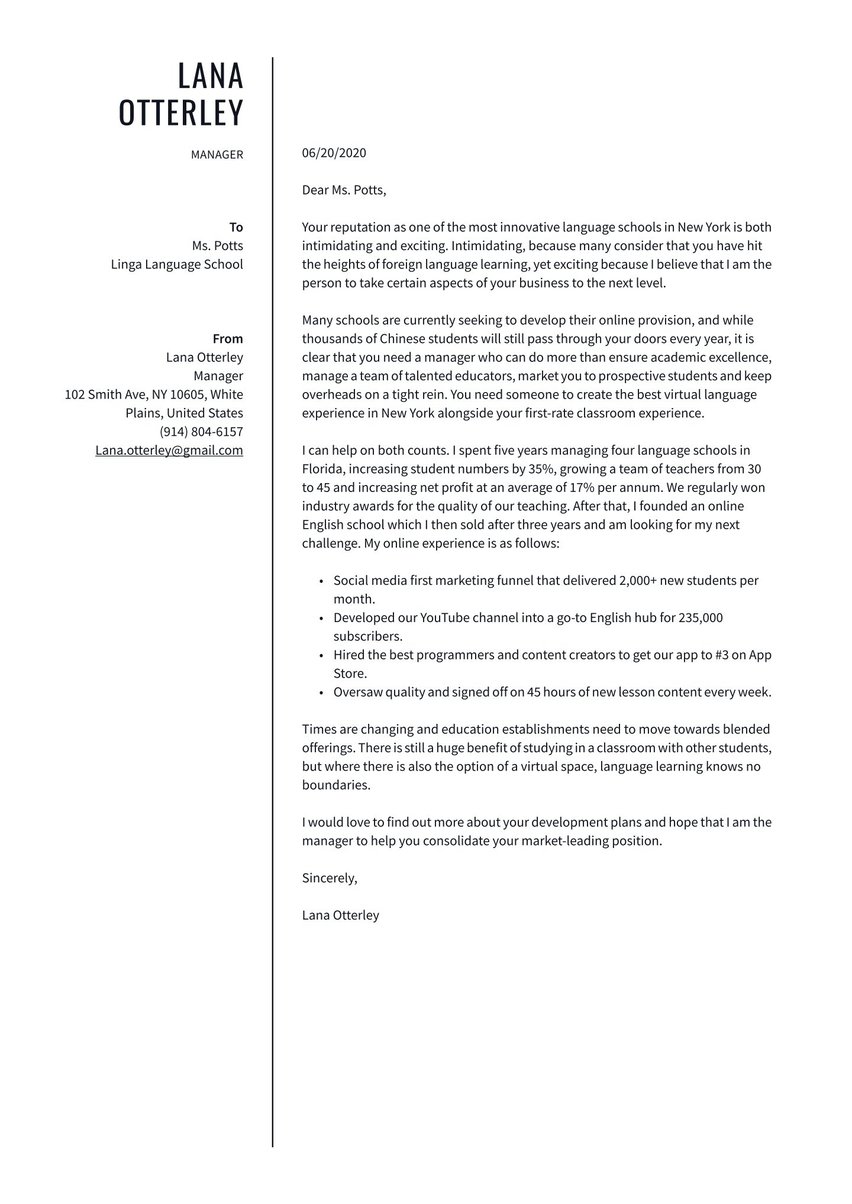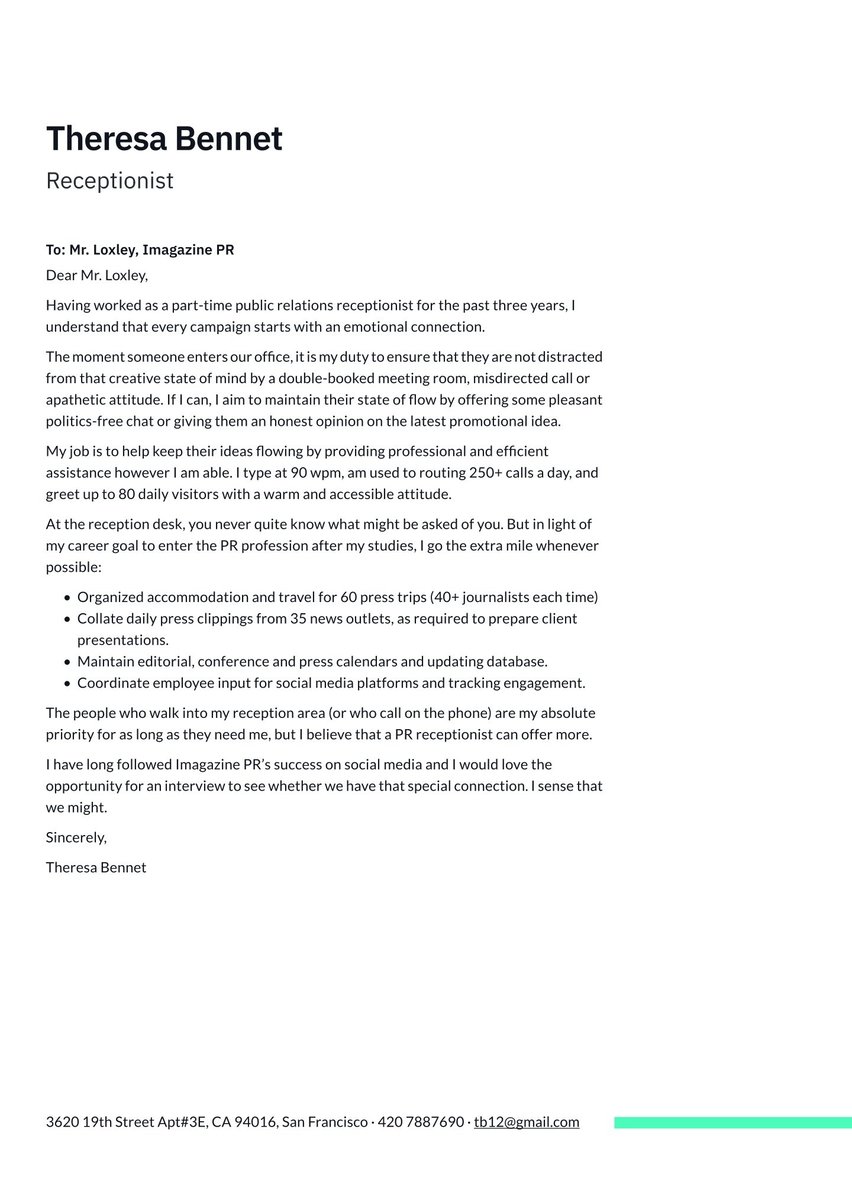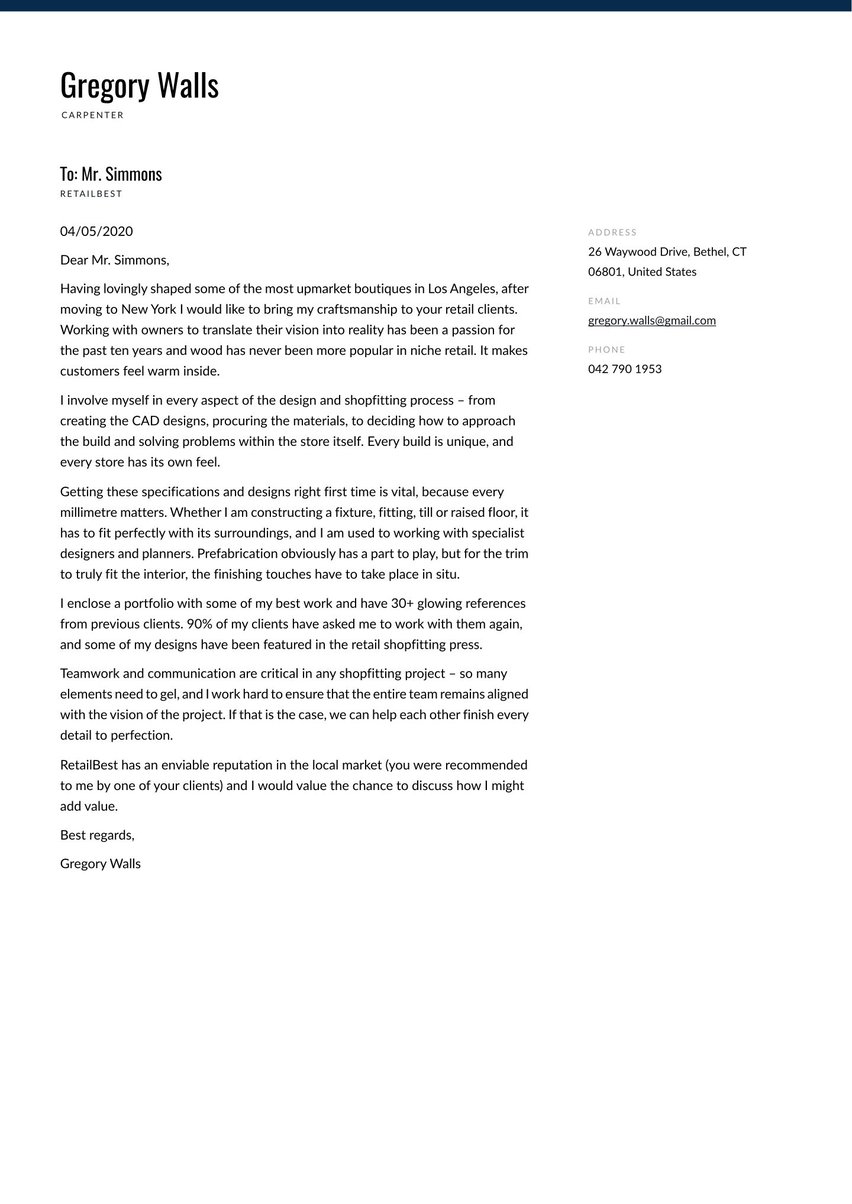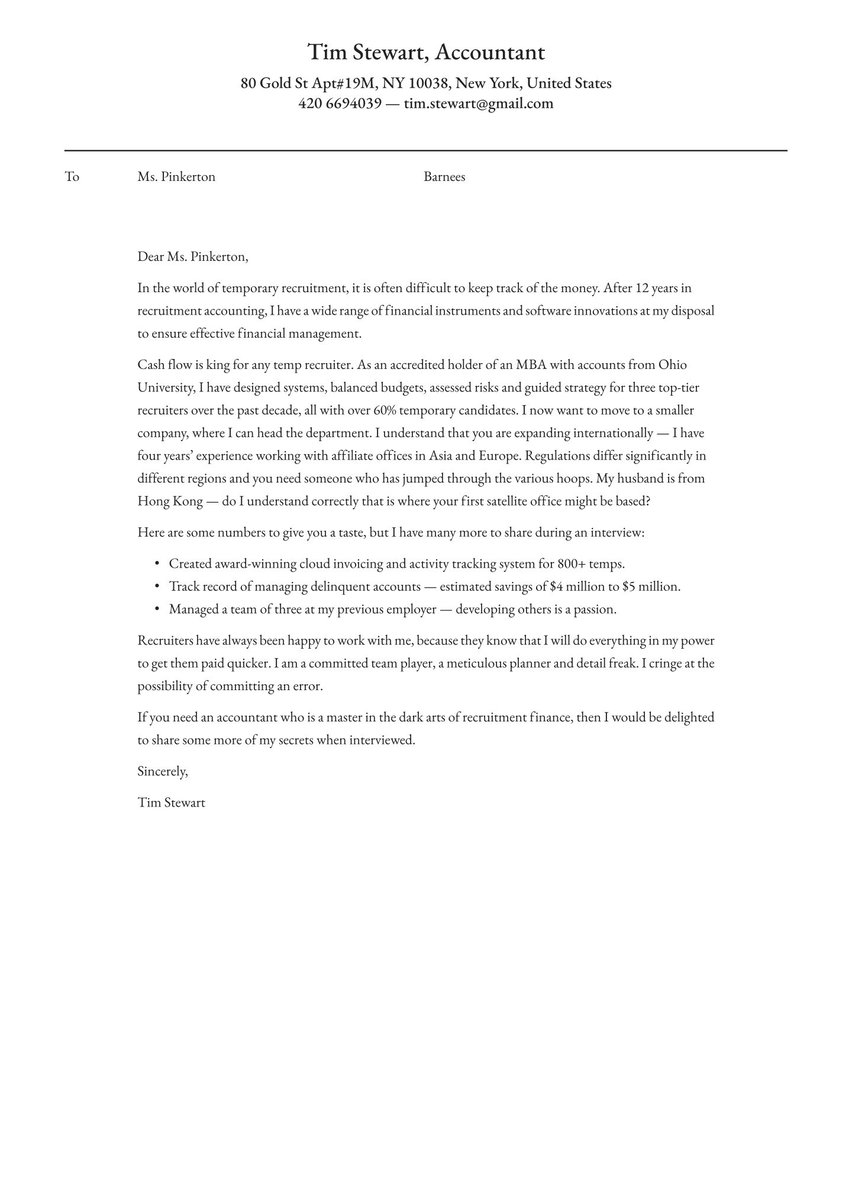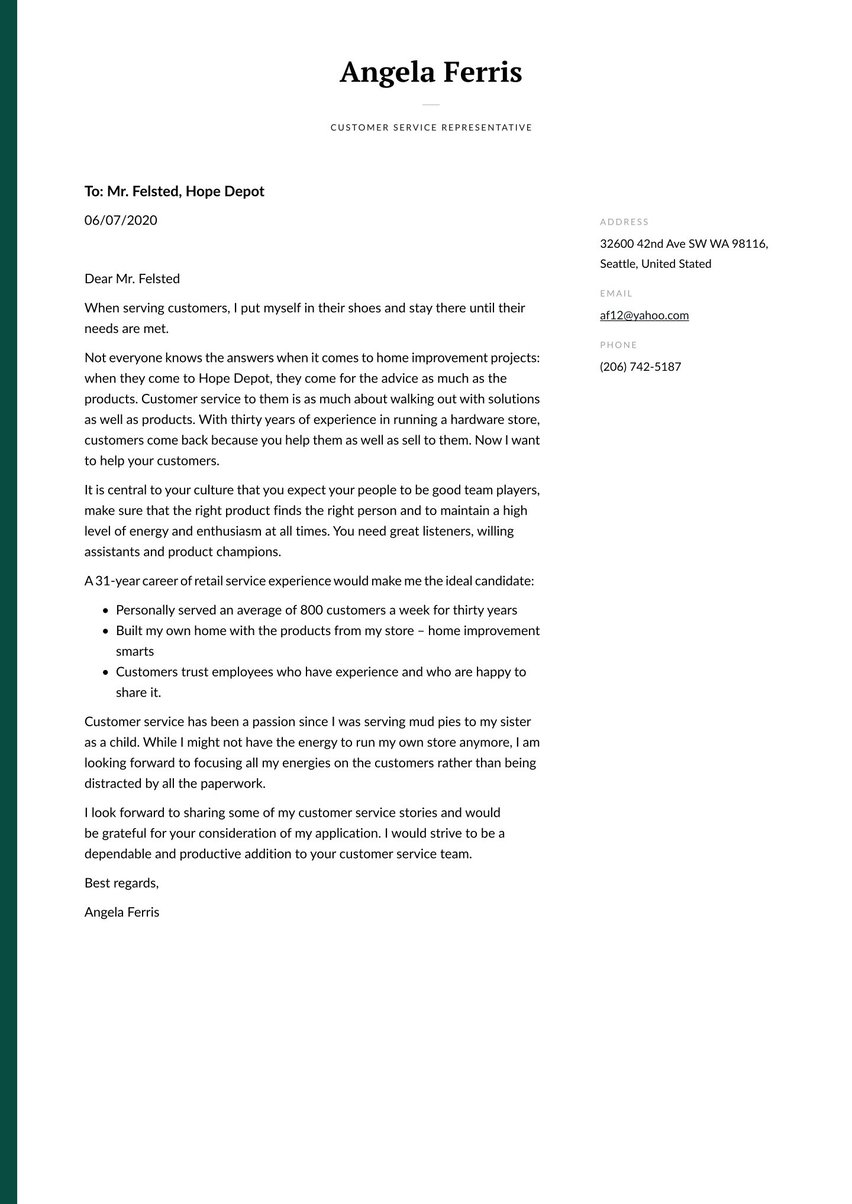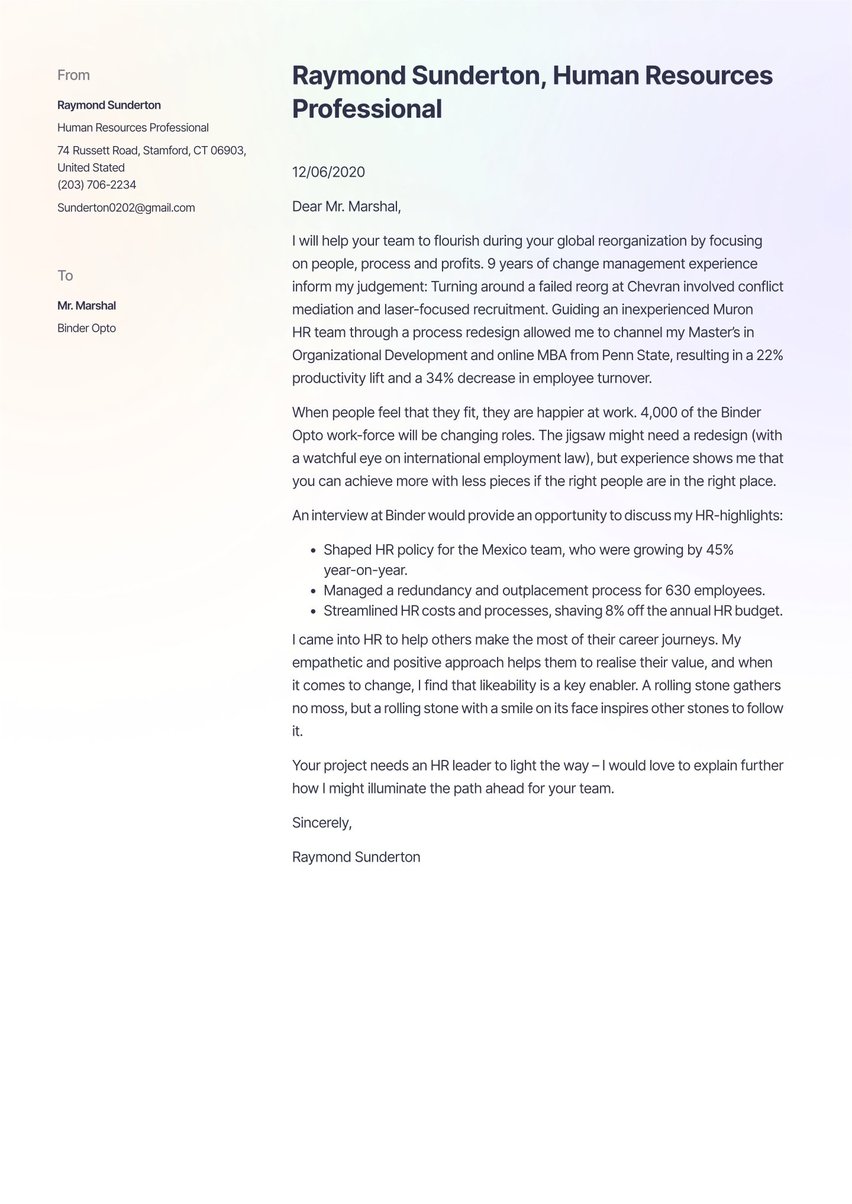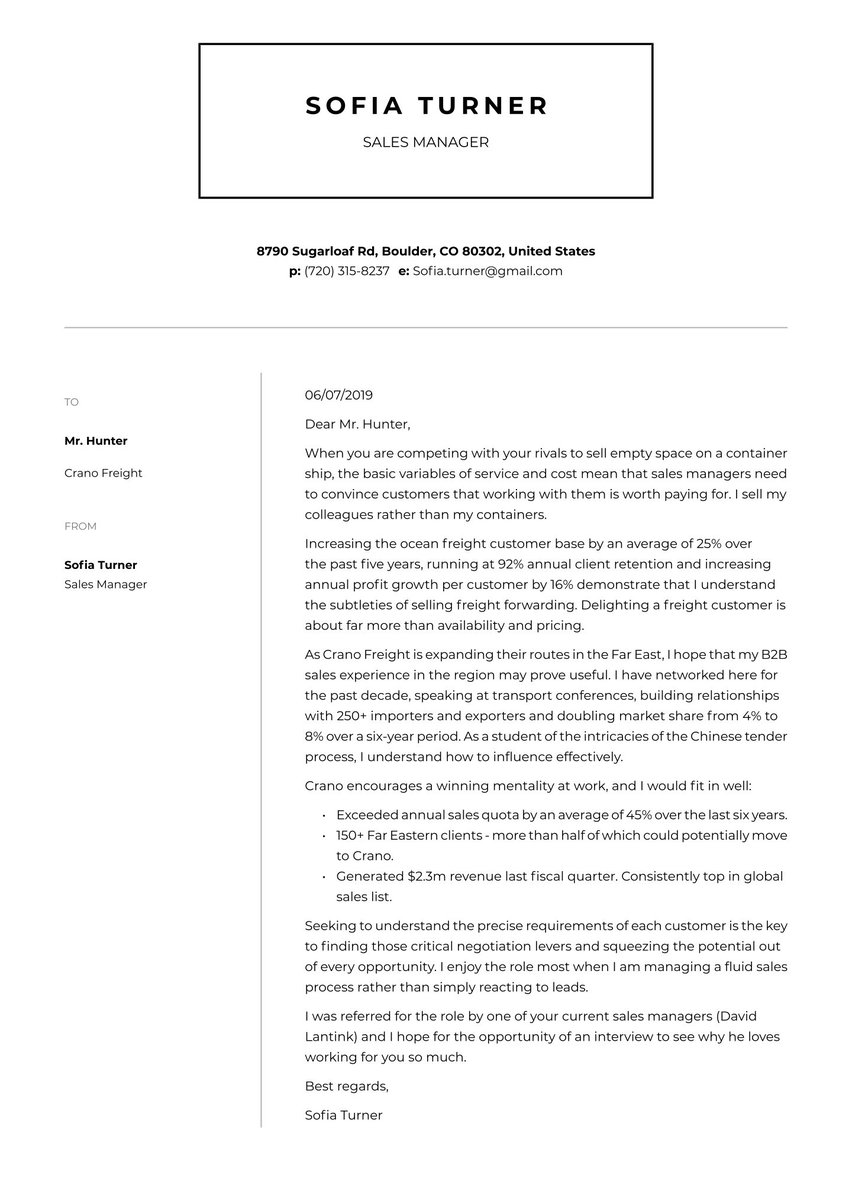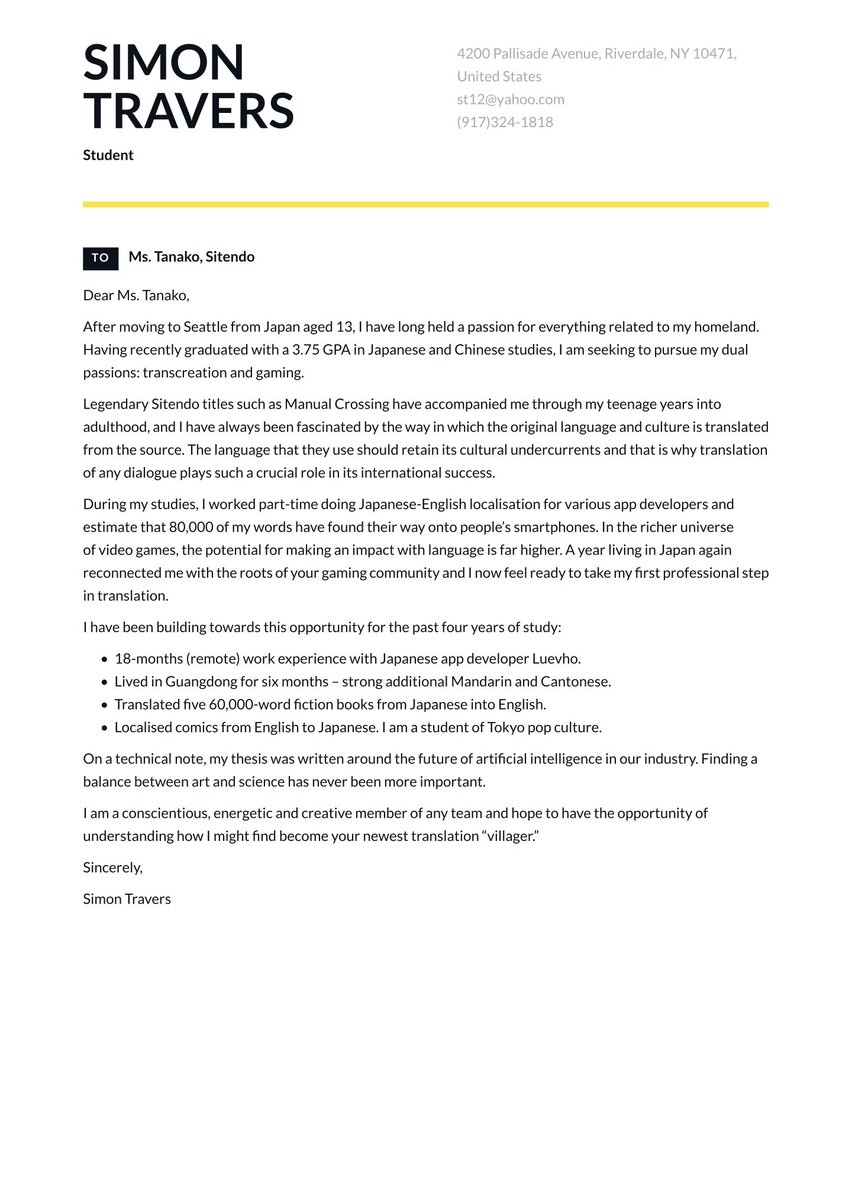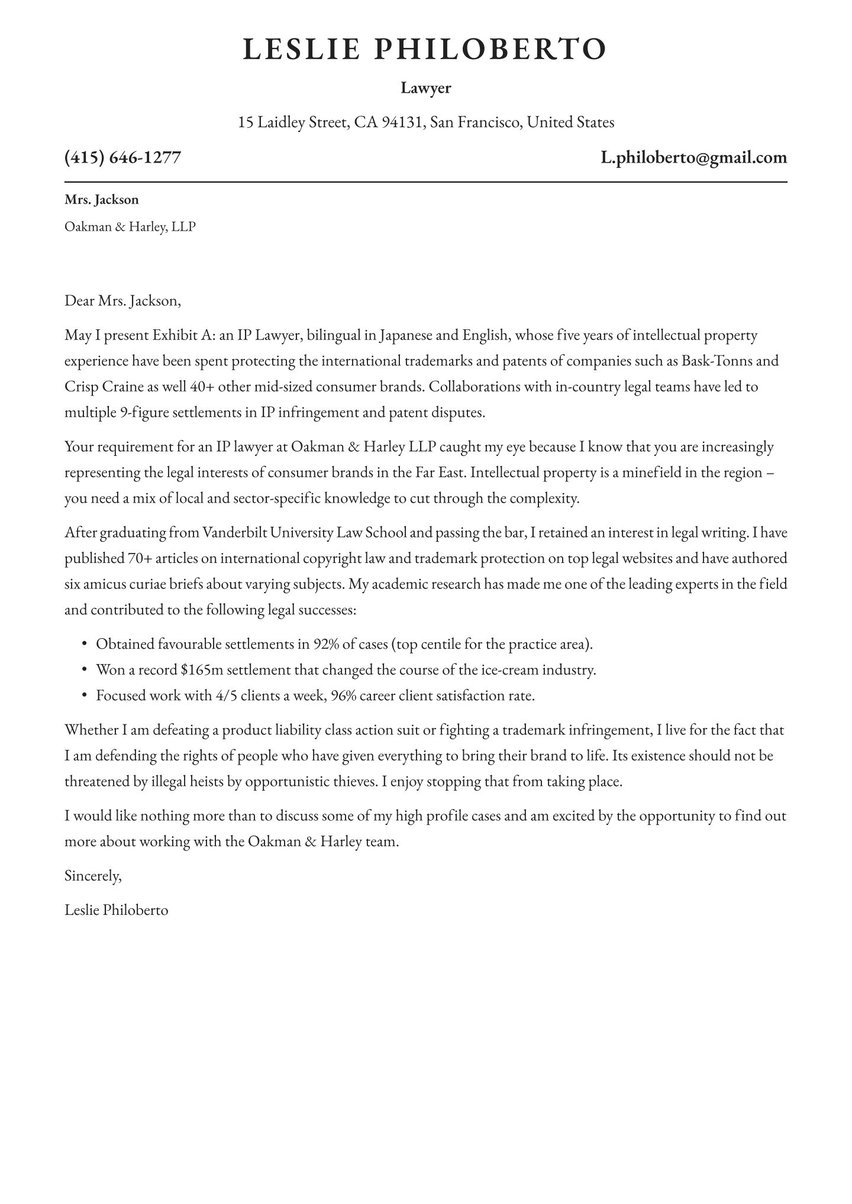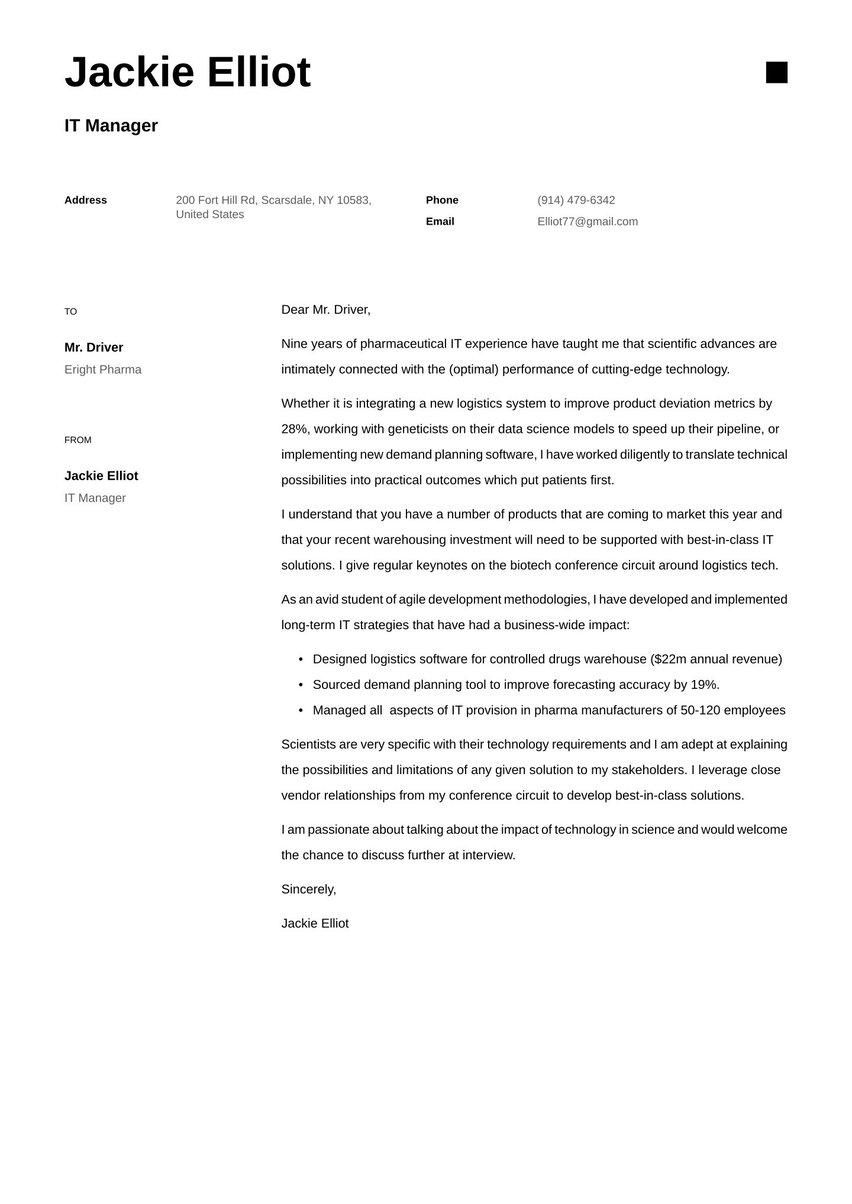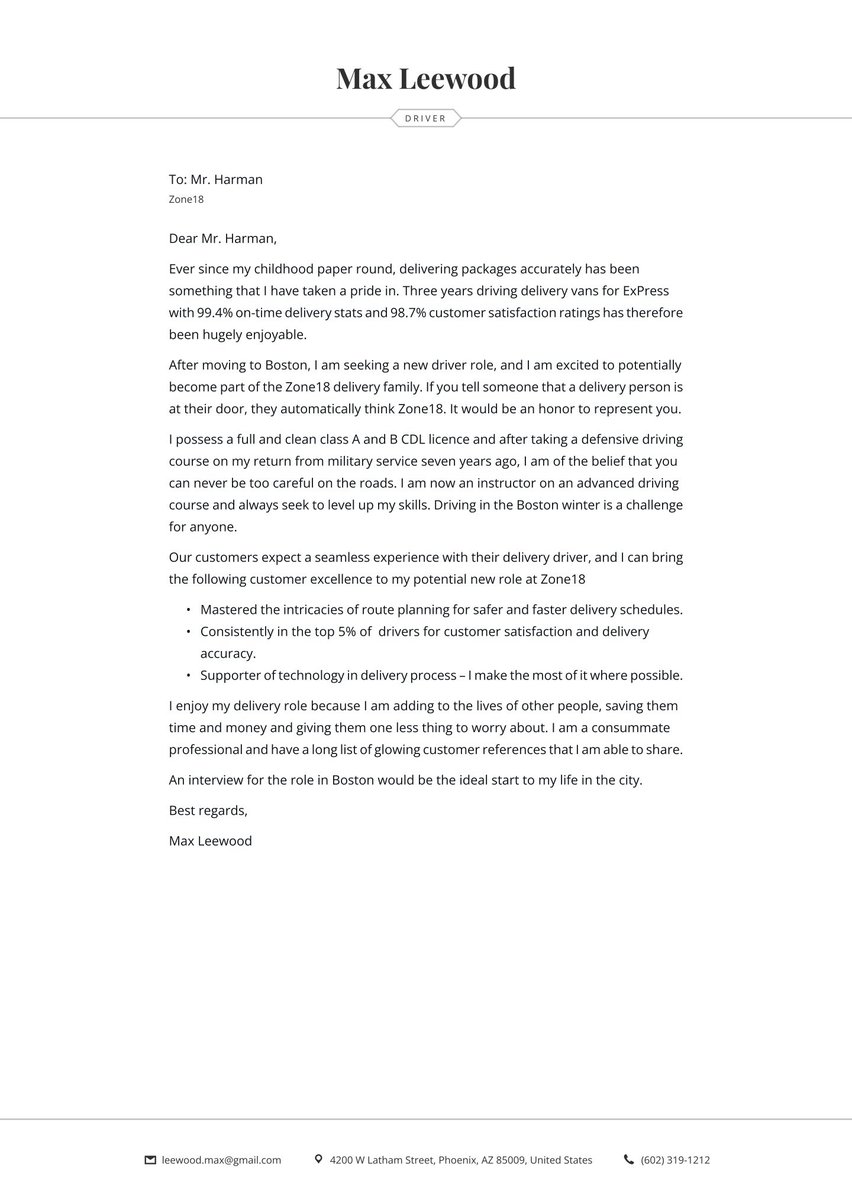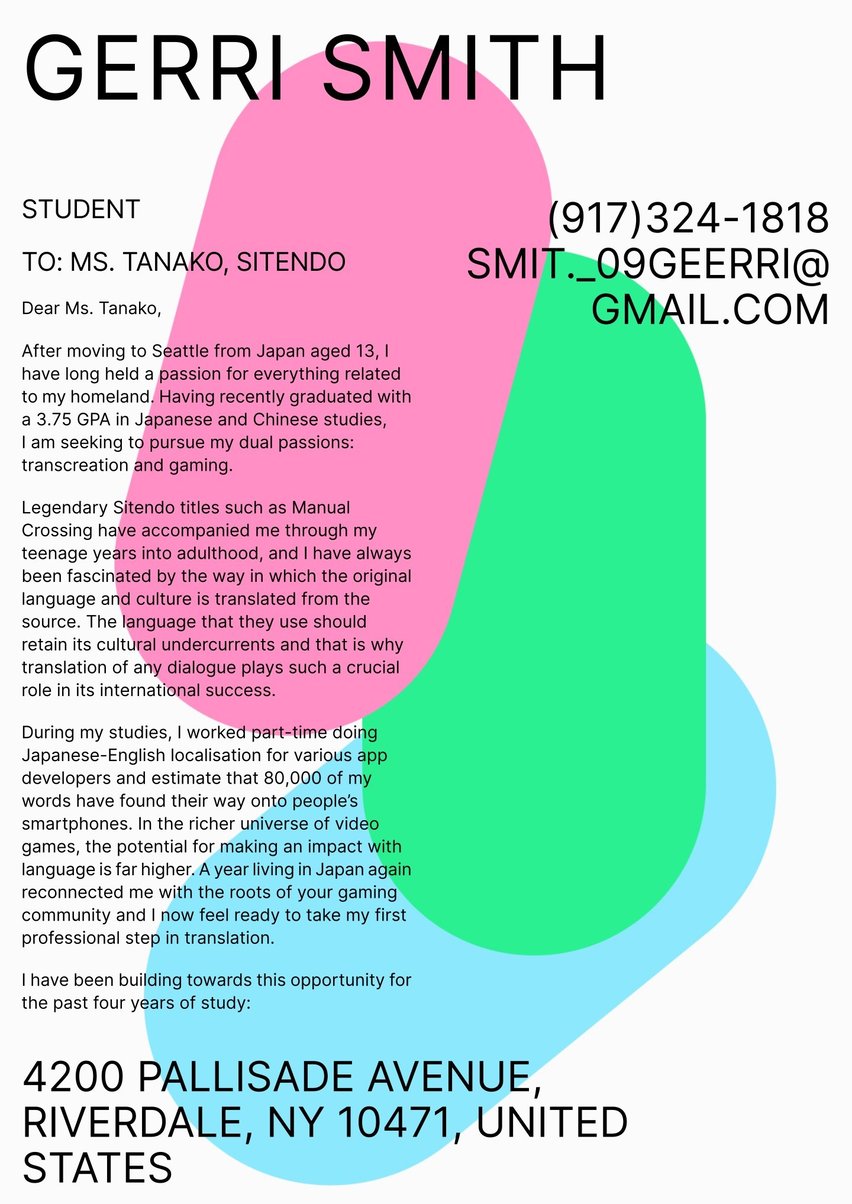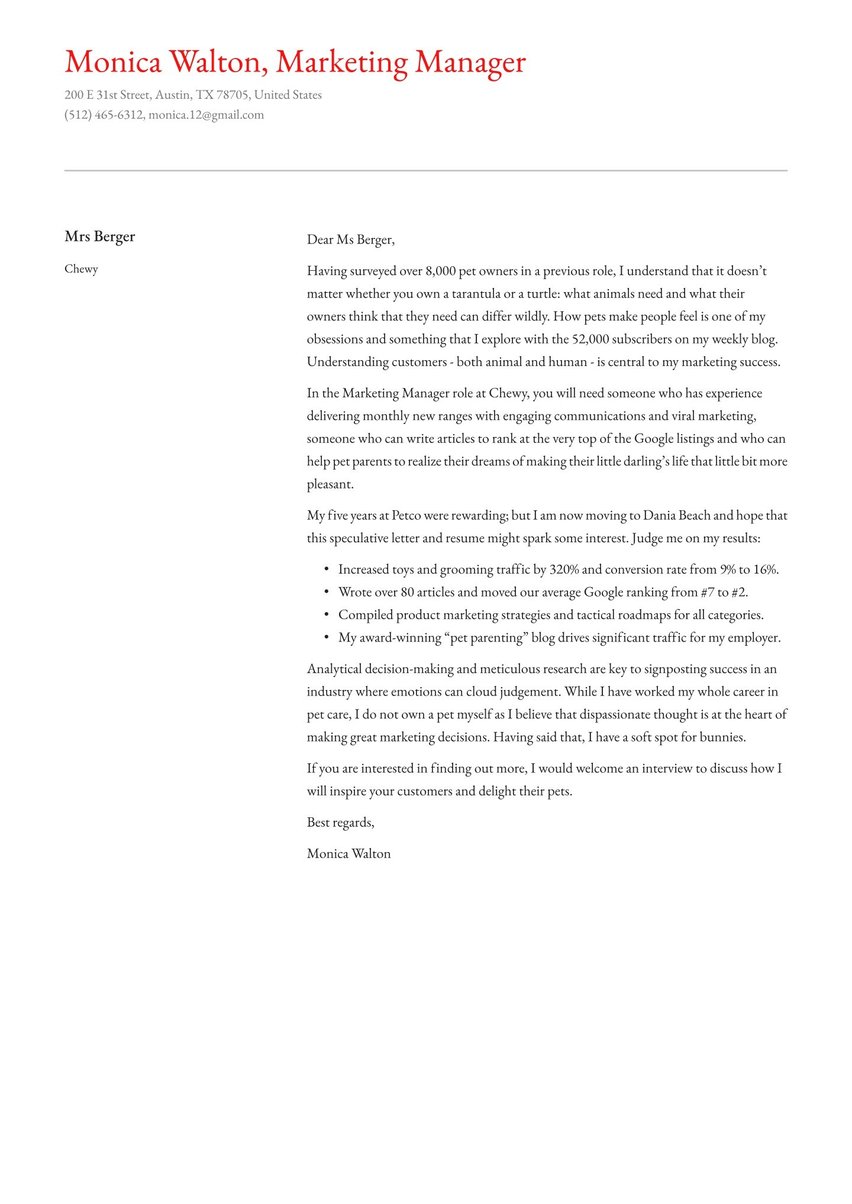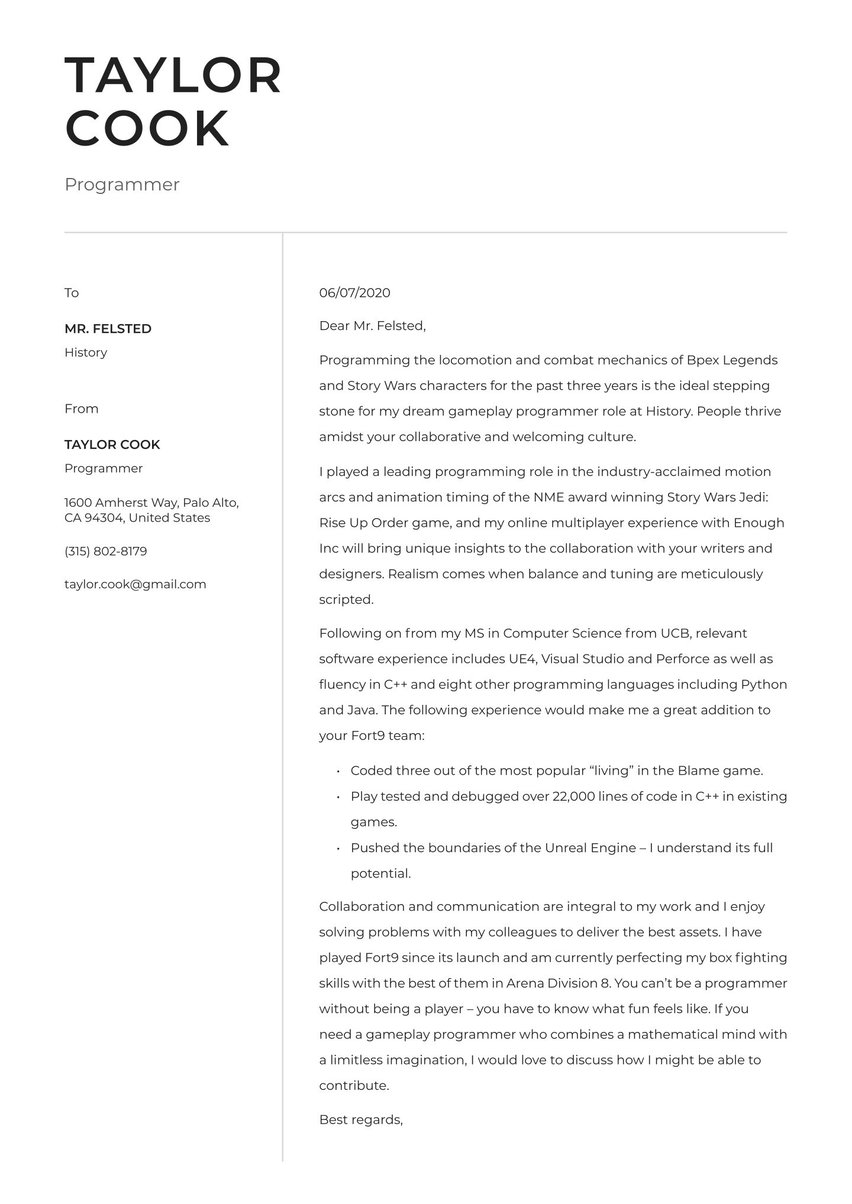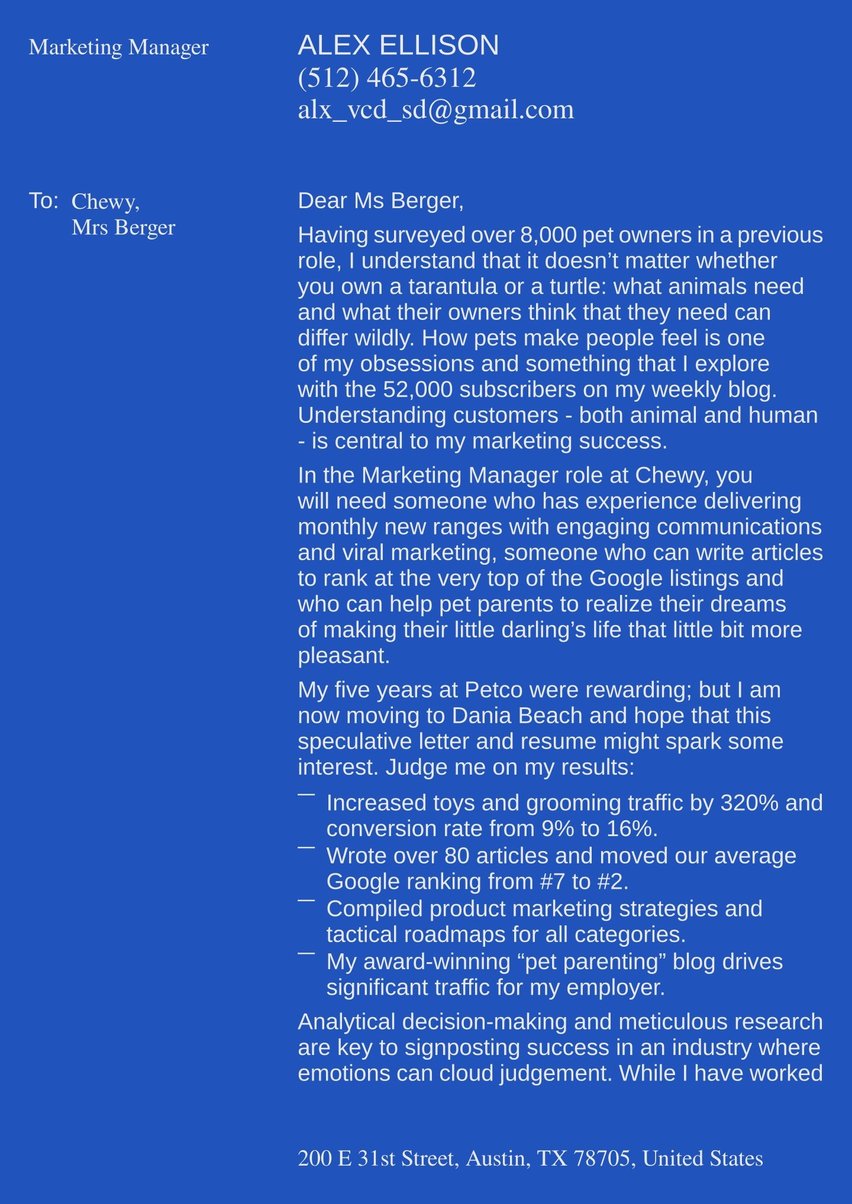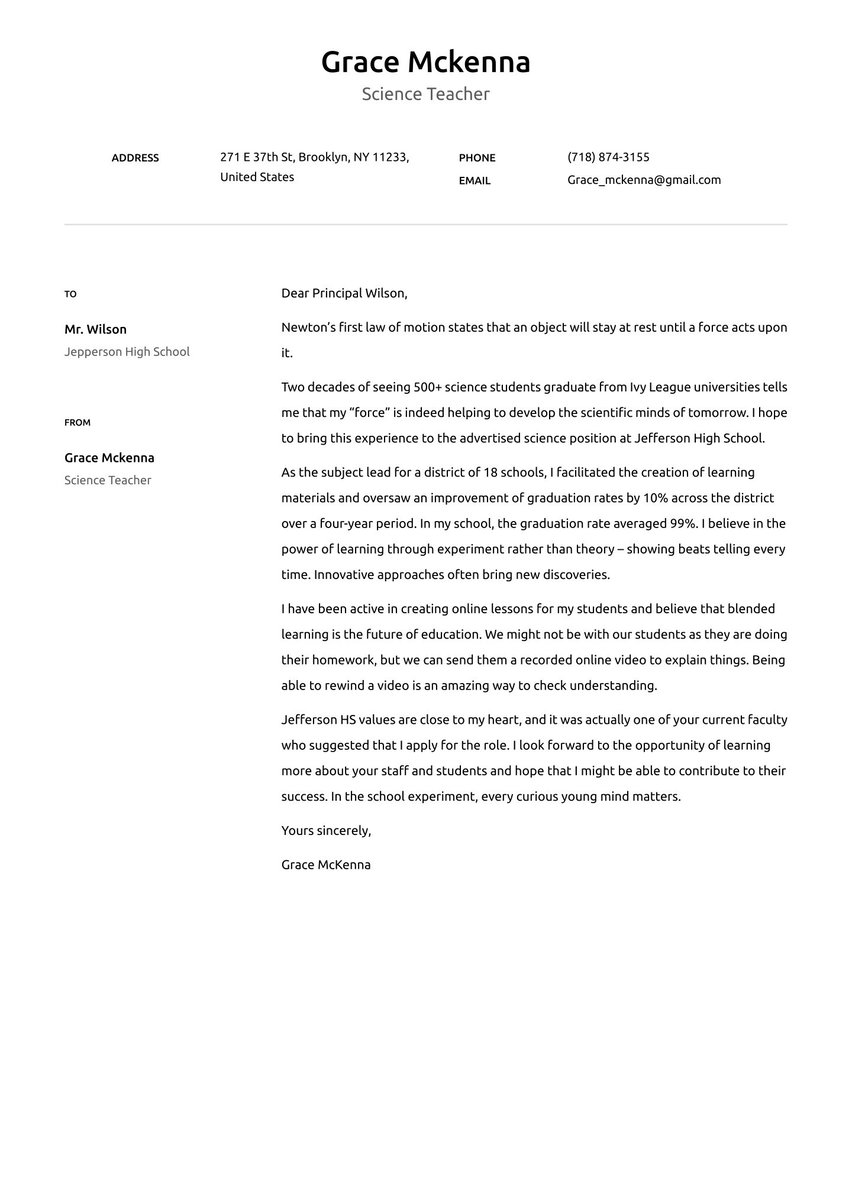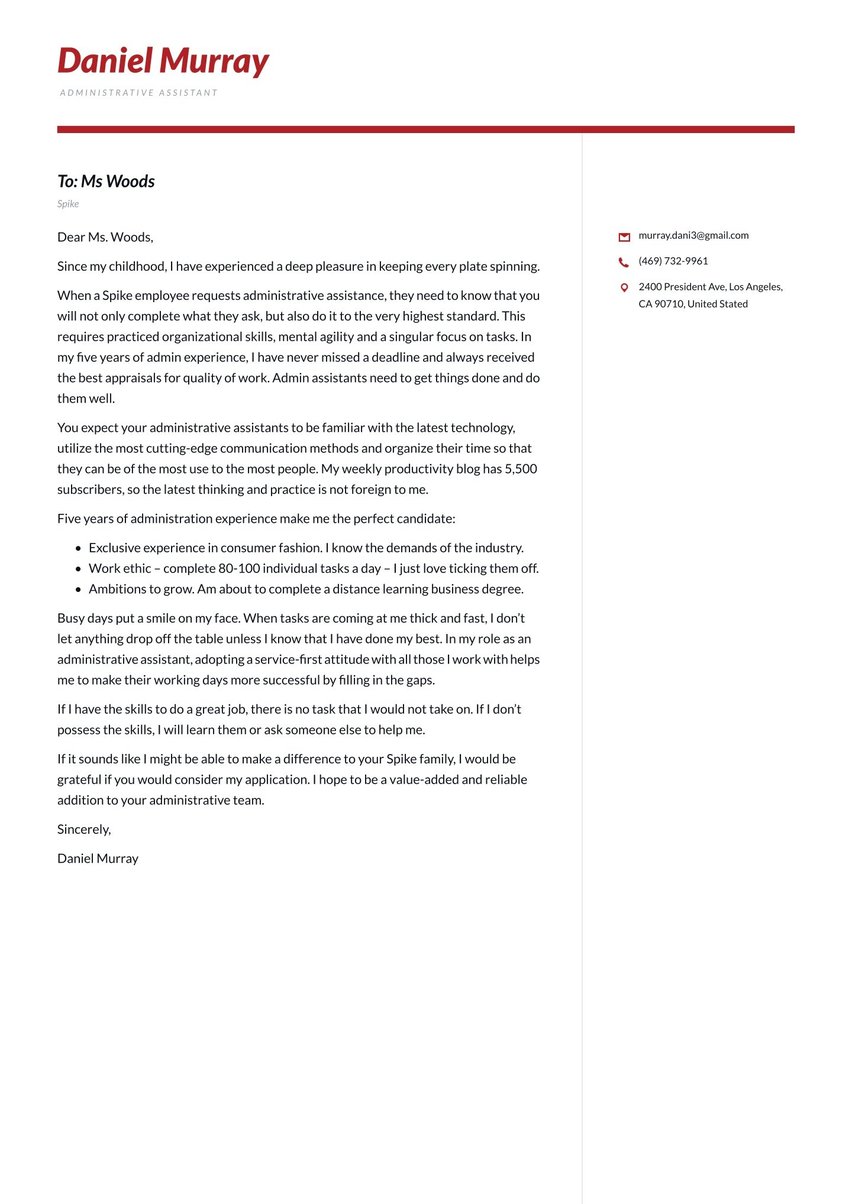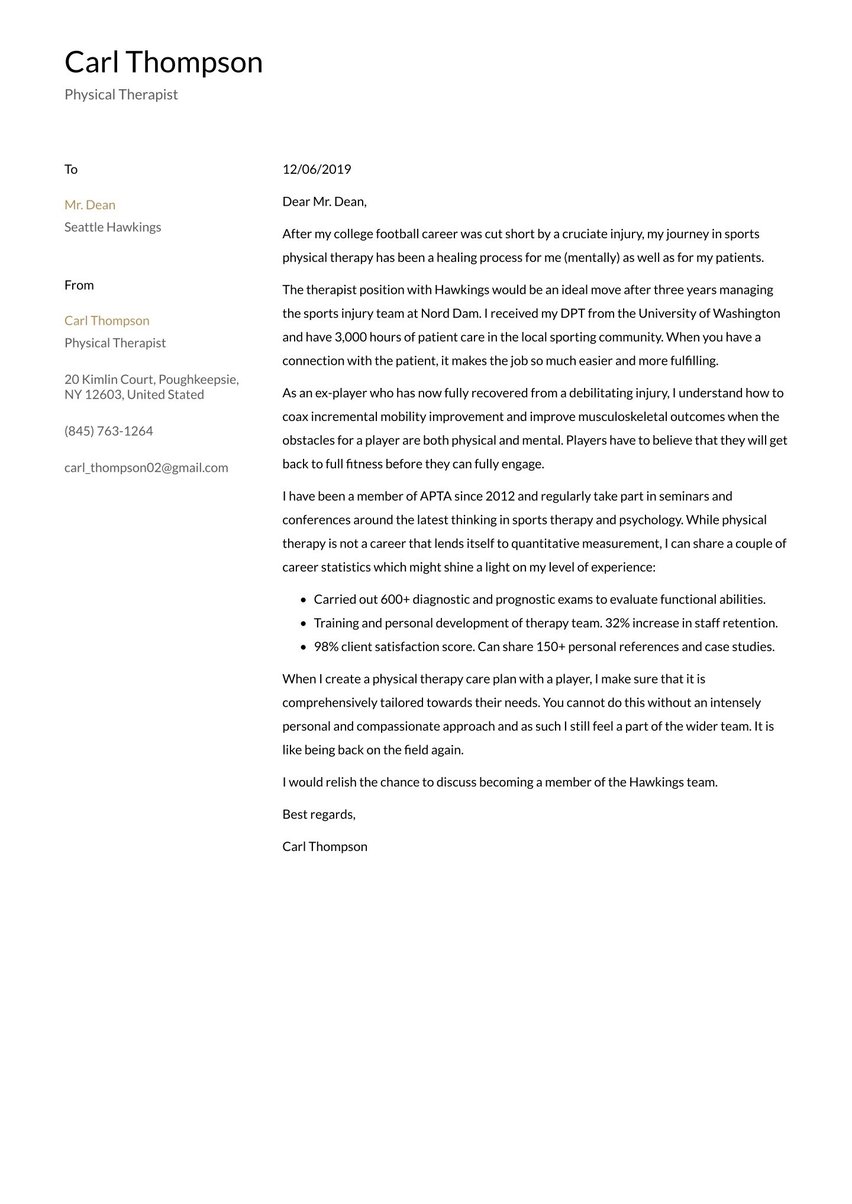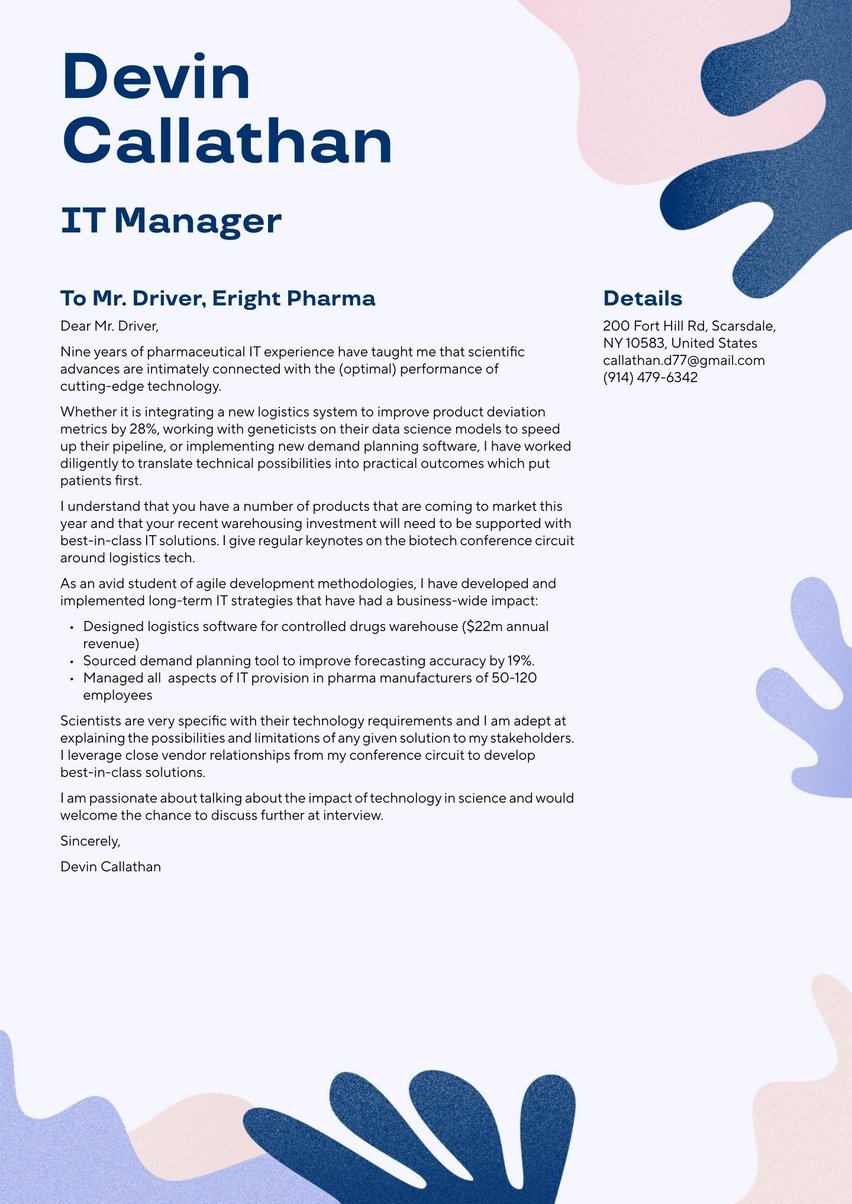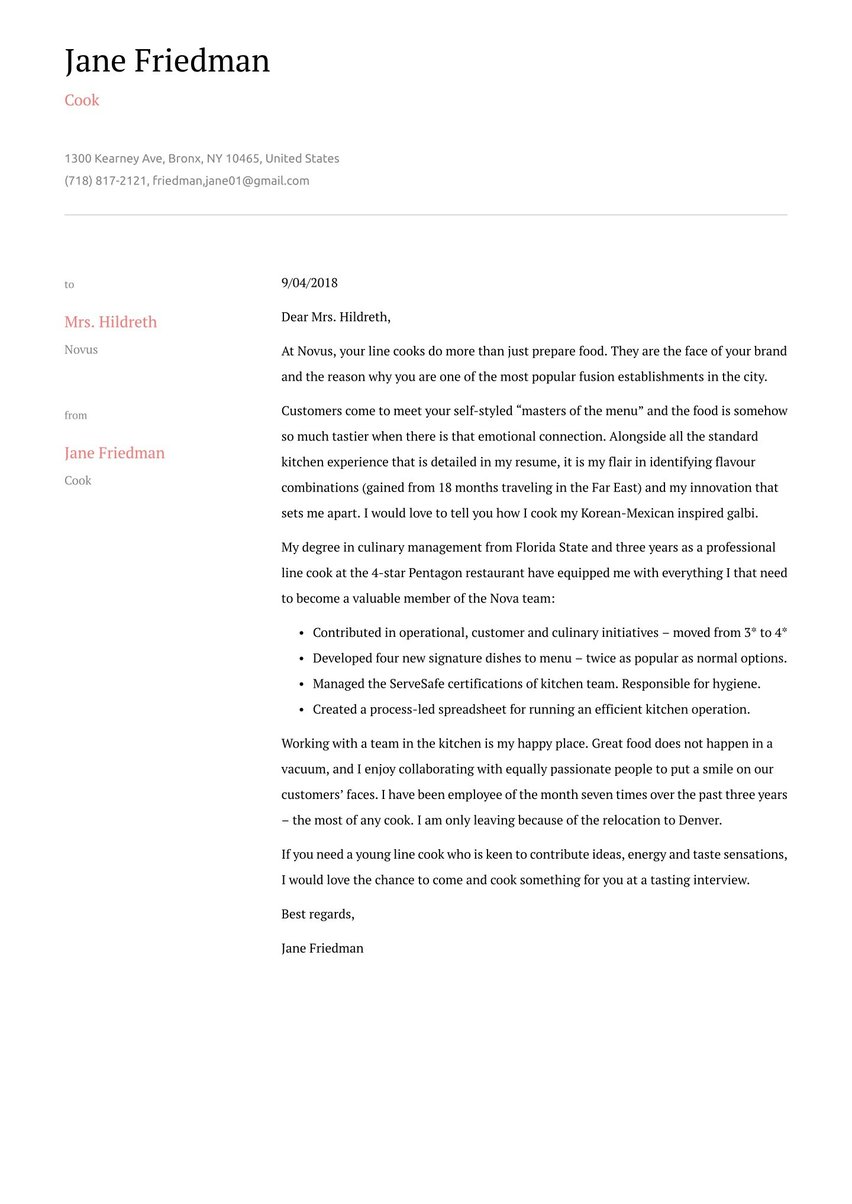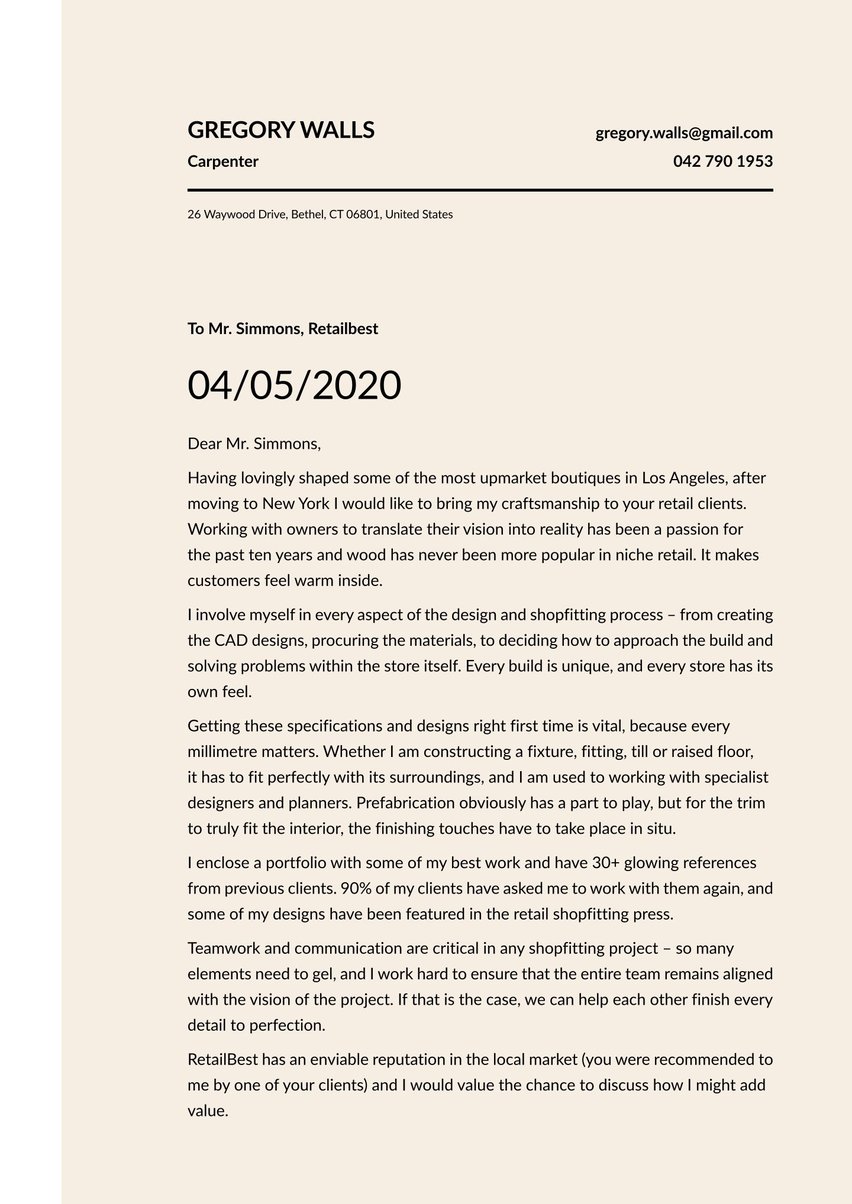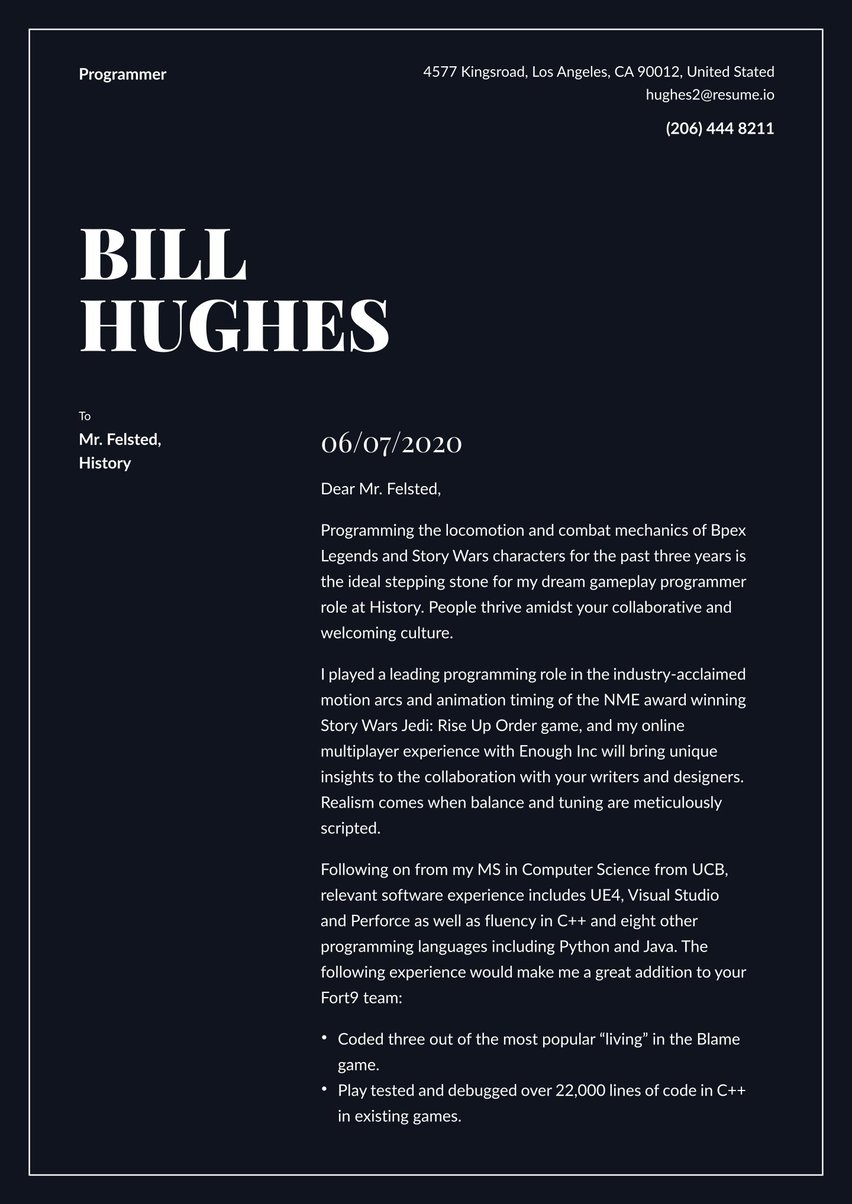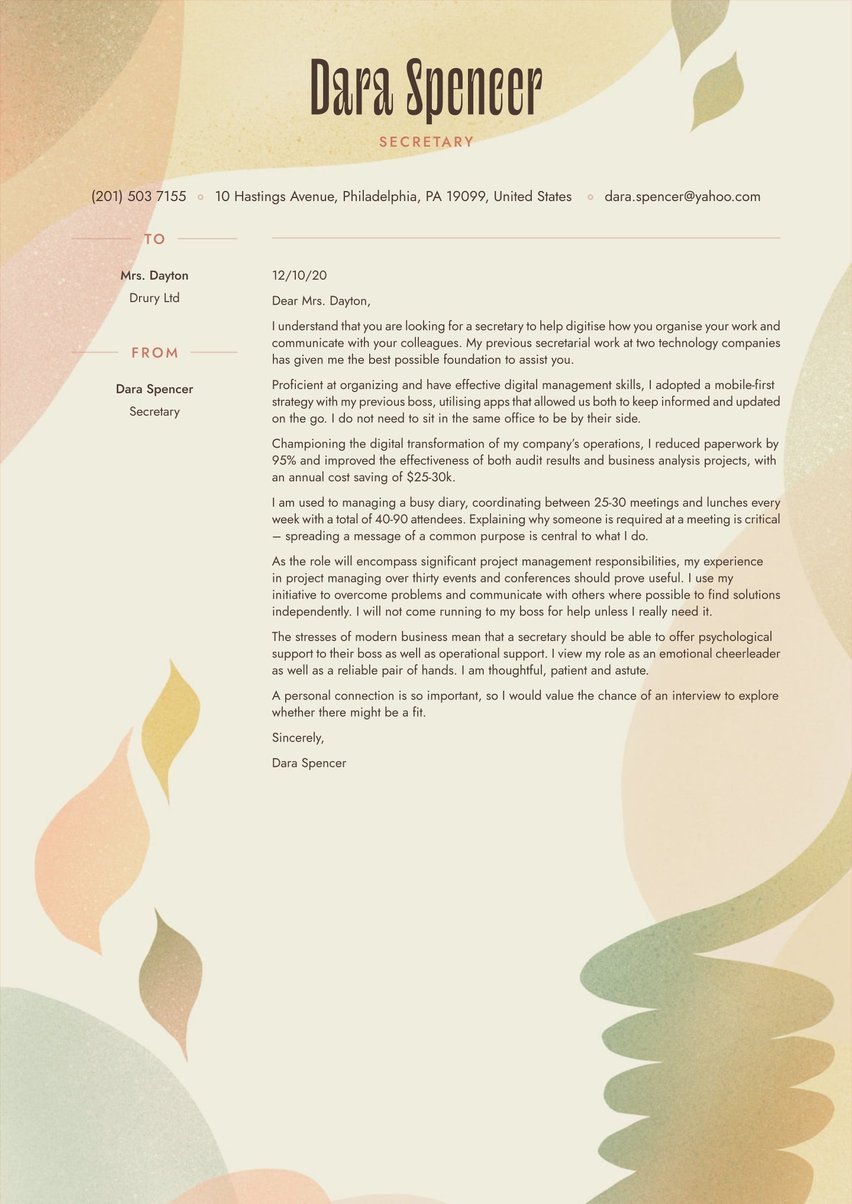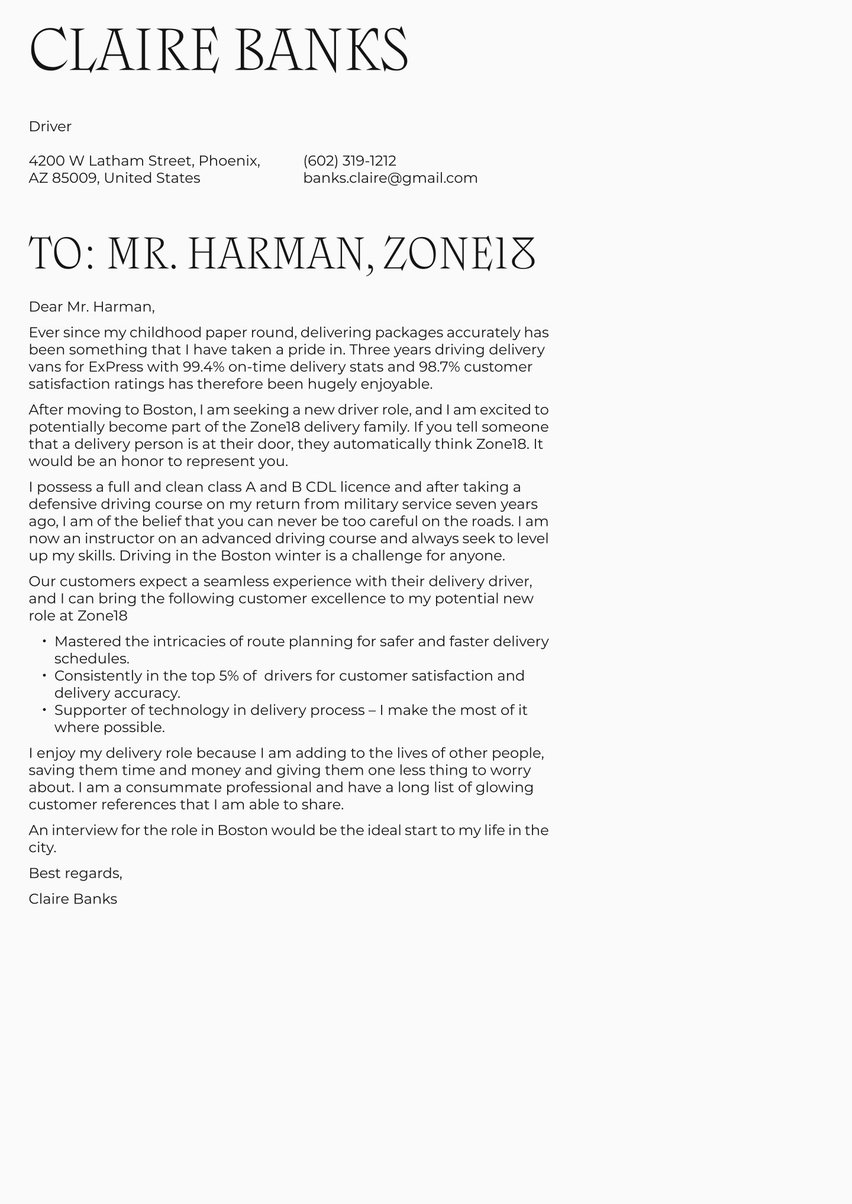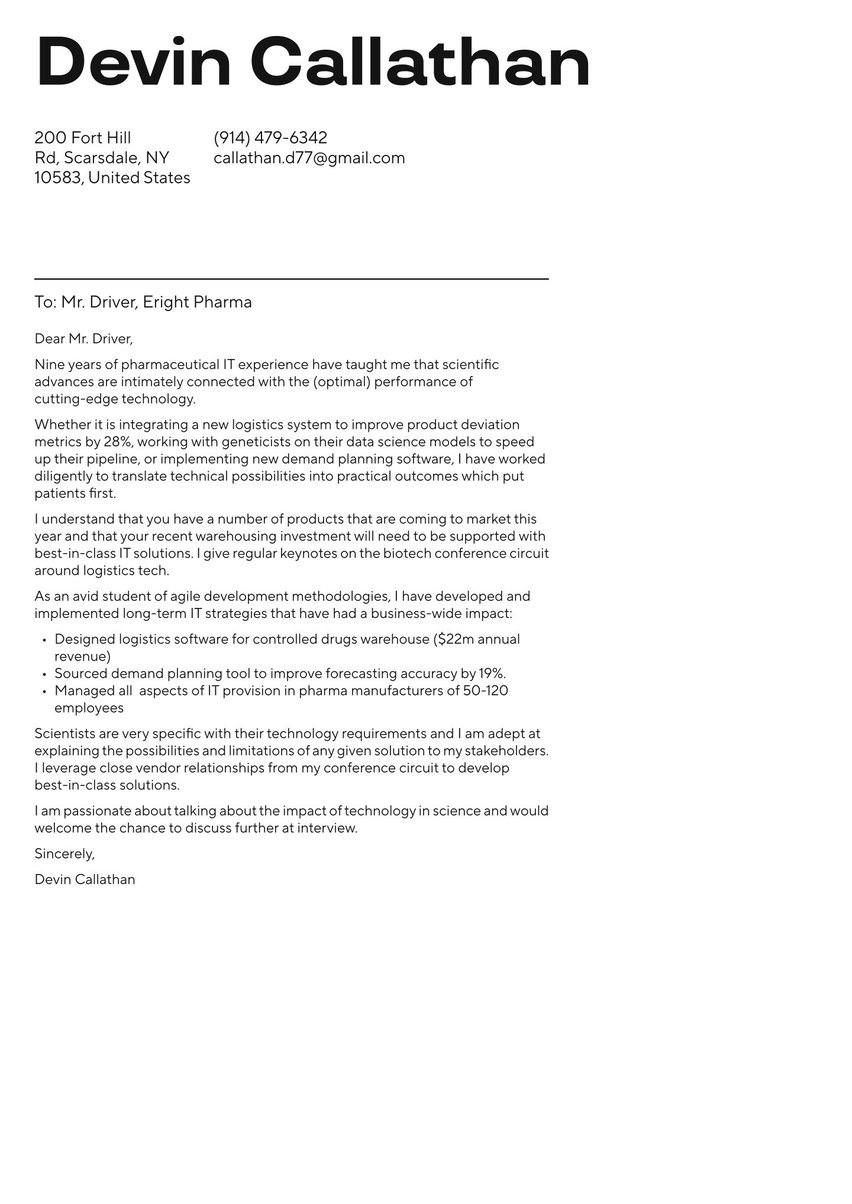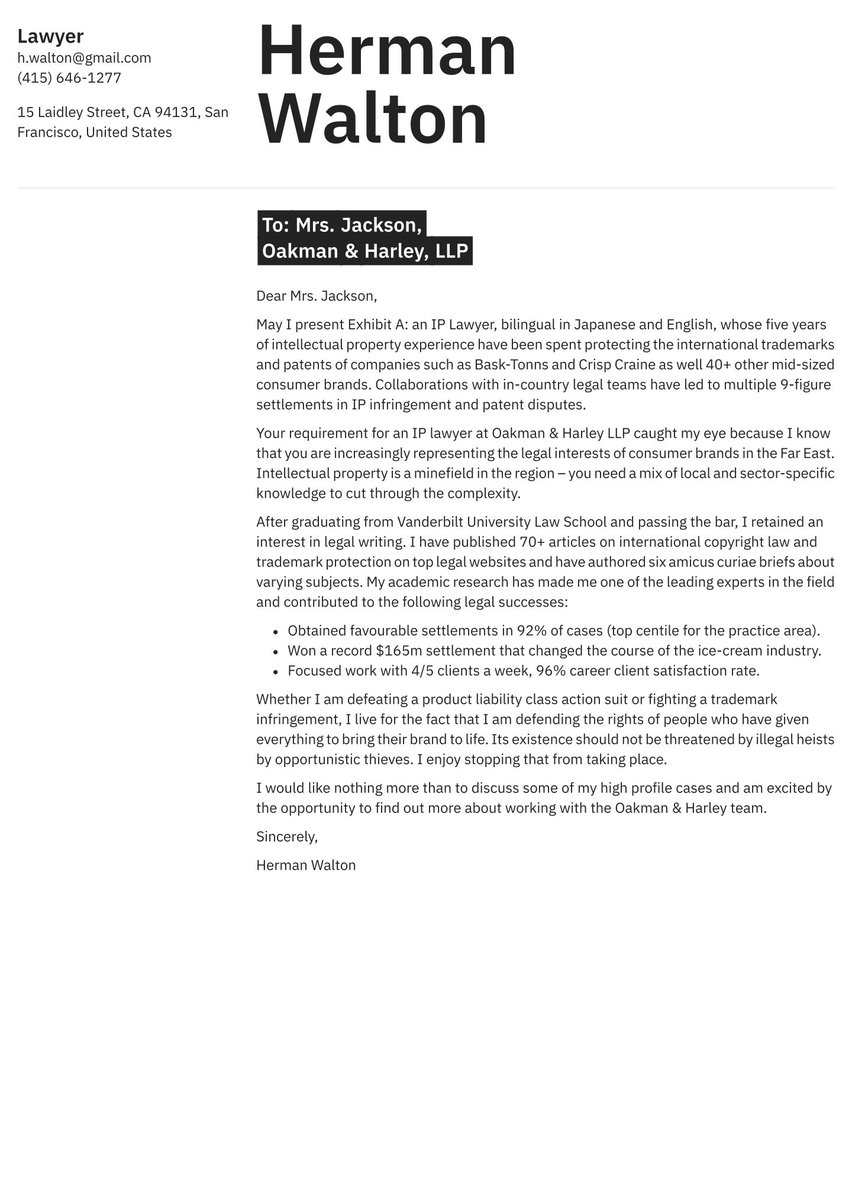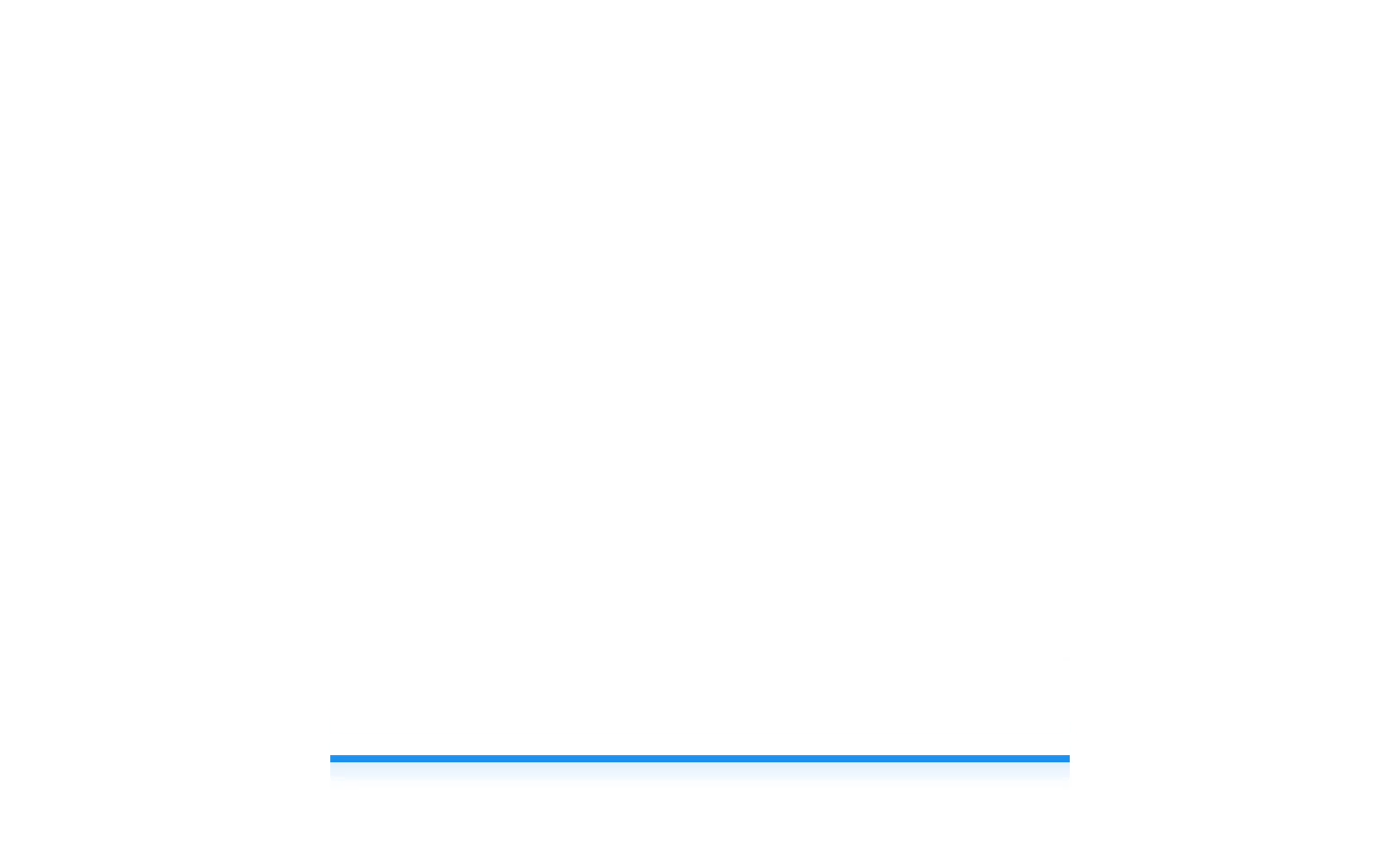If stacks of books, piles of DVDs and a handful of magazines sounds like your ideal afternoon, a library assistant position might just be your next dream job.
Library assistant is a great entry-level position and stepping-stone into the world of archives and media. While most full-time librarian roles require a post-secondary degree, library assistants can quickly be trained for their job. That’s why library assistant is a popular position for high school and college students.
Since most library assistants will be coming to the job without prior experience, the trick is to highlight your great organizational skills and general love of libraries and their services. The best perspective is one of a library buff. A cover letter is one of the best places to do that since it allows you to speak freely about what makes you feel like home there.
So how do you write the perfect cover letter? Resume.io has got your back with this library assistant cover letter example plus our free templates and cover letter builder tool.
This library assistant cover letter example along with our adaptable cover letter sample will:
- Explain how a cover letter can maximize your chances of landing any library assistant role
- Offer free examples, samples and templates for your cover letter
- Explore the best ways to land a library assistant role with no experience
- Show you why great formatting is essential to a standout application!
Before you dive into writing the perfect cover letter, you’ll want to create a resume. Even if you don’t have much professional experience yet, a resume helps introduce you to the librarians you’ll be working with and give a sense of your educational background if you’re still a student.
You can find step by step guidance on how to write a great resume in our comprehensive resume example guide. Check out our resume templates and builder tool to make formatting your document a breeze.
What if the library assistant job application DOESN’T require a cover letter?
Let’s say you’re applying for a position as a library assistant at your school or university. There’s a good chance you might even know the librarian who will be reading your application. If they don’t mention submitting a cover letter, do you still need to write one?
The answer is deceptively simple: unless asked not to submit a cover letter, it’s always a good idea to write one. The beauty of the document is its flexibility. If you’re already quite familiar with the library staff, your cover letter can take the form of a short note thanking them for considering you and explaining why you want to transition from a library patron to a staff member. Let your cover letter be as formal or as casual as it needs to be depending on your relationship with the library.
One reason why we recommend writing your resume before your cover letter is because it makes the purpose of a cover letter much clearer. Your resume is generally broken up into rigid sections. While you might be able to talk about your goals and express your personality in the short summary section, the rest of the document is focused on the facts of your education and experience.
Your cover letter is the perfect counterbalance. This one-page document (about 200-400 words) is all about the professional story you want to tell. Here, you can go into detail about some of your most relevant experiences or you can discuss the traits that will make you a great library assistant. If you are just starting out in your career, a cover letter lets you expand on a thin resume to paint a more well-rounded picture of you as a candidate.
A cover letter is not only about great writing. It’s also a chance to make a great first impression through formatting. Just like a beautiful book cover makes you want to read what’s inside, an attractive visual presentation for your cover letter draws the hiring manager into your application. For specific rules regarding fonts and sizes, make sure to check out our overall guide on cover letter writing.
Best format for a library assistant cover letter
Just because a cover letter is more freeform than a resume, doesn’t mean it lacks a structure entirely. In this section, we’ll simplify the writing process by breaking it down into bite-sized steps that ensure you’ve included all the right information. And the best part? This outline works for most any cover letter regardless of position or industry. Learning to write a great cover letter is a skill that will benefit you for years to come!
Here are the key components:
- The cover letter header
- The greeting
- The introduction
- The letter body
- The conclusion
- The signature.
For even more details on how to write each section (including free example sentences!), check out our comprehensive cover letter writing guide.
Tailor your cover letter for success
Since library positions aren’t as plentiful as other entry-level jobs, you likely know which library you’ll be applying to before you begin your cover letter. That’s a great first step. Before you submit your cover letter, make sure you’ve customized it to the needs of that particular library and the job description they’ve provided.
For example, most library assistants will sort and put away various materials. If your intended workplace is also looking for someone who can help out at community events, mentioning your previous, relevant volunteer roles can show that you’re thoroughly interested in the position and are prepared to tackle all duties with enthusiasm.
Cover letter header
Your cover letter header has two important jobs to do. The first is to label your document with your name and contact information. This makes it easy for a hiring supervisor to find out who you are and contact you should they want to schedule a job interview. The second role of the header is to create attractive formatting. Since this is likely the only place on the page where you’ll get to add color or design elements, it’s worth making sure your layout is polished and professional.
The goal of this section: Keep your necessary personal details right at the hiring manager’s fingertips, create attractive formatting that is appropriate for the position
Align document styles!
For entry-level roles like library assistant, a bit of extra effort can go a long way. If you’re serious about landing the position, try aligning the document styles of your cover letter and resume for an even more polished presentation. Consistent formatting will help your application stand out – and it doesn’t have to be difficult! Cover letter templates and corresponding resume templates can help you create subtle, attractive designs in just a few clicks. For library assistant roles, we recommend our collection of simple templates.
Cover letter greeting
The cover letter greeting is the starting place of that all-important personal connection. Your tone should also be friendly and professionally appropriate based on your relationship with the hiring supervisor. If you already know the person reading your cover letter on a first-name basis, go ahead and use that name. If not, try to address them with a more standard greeting like “Dear” followed by the correct salutation and last name.
The goal of this section: Create a personal connection by addressing your cover letter recipient by name based on your existing relationship
The importance of names and addressed greetings.
Knowing and using people’s names is one of the best ways to create conviviality in the customer service experience. Using someone’s name shows that we care and are interesting in helping them.The same is true in libraries and in cover letters. And the evidence isn’t just anecdotal. According to the Washington Post, studies have actually shown that people have a positive neurological response to hearing their own names.
That’s why you should address your cover letter recipient by name whenever possible. However, in large library systems where hiring is done by a central team, it may be difficult to determine who will actually be reading your letter. While you can address a group of names if you have them, you can also use a collective noun. “(Library Name) Hiring Team” can work well as can “Library Family.”
Cover letter introduction
A great cover letter introduction (or lack thereof) can make or break the rest of your letter. This is the moment to hook the reader’s attention and give them a taste of all the great qualities you bring. For a library assistant, your introduction should be upbeat, interesting and to the point. A relevant anecdote or an energetic statement about your skills can help you get your cover letter off to a great start.
The goal of this section: Grab the reader’s attention with a personality-filled opening line that leads directly into the body of your cover letter. Relevant skills or your motivations for working as a library assistant are a great place to start.
The business section of the library is my second home, so I feel that I am qualified for the part-time library assistant role. After many years of study, those books are like old friends.
Cover letter middle part (body)
Now it’s time to expand on all the great qualities you have to offer as a library assistant. If you have relevant experience, even as a volunteer or student, the STAR method can help you organize it. First, briefly describe a Situation and the Task required, then explain your Action and the positive Result it caused. Try to choose examples that are most relevant to work as a library assistant i.e. tasks involving organization, helping others, community projects or media.
In a second body paragraph, you can speak directly to your top skills that make you perfect for the position. Since most of a library assistant’s duties can be learned on the job, it’s a good idea to focus on soft skills like teachability, motivation and a passion for libraries.
The goal of this section: Use the STAR method to highlight your most convincing previous experiences, describe your skills and potential contributions to the position
It would be a perfect accompaniment to my PhD studies. I understand the operational details of a successful library – I have certainly spent enough time there as a reader. 3,000+ books come and go every day, and while the system is automated, our role is to double-check that every book returns home. Every student has looked up a DEWEY code correctly only to find that the book was somehow elsewhere. That is frustrating.
I have expertise in economics, business studies and MBA studies and would be happy to curate and source the latest titles. My PhD is in behavioral economics, so psychology is also closely related. It is critical for any library to stock the latest thinking in these popular areas.
I have the following operational experience:
- Trained new faculty students with the LMS (Koha & Biblioteq) for 2 years
- Ran a course around digital learning tools and updated the economics homepage
- Took a weekend Library Management course in preparation for this role
I am meticulous thinker with a completer-finisher mentality – my references indicate that I would be an ideal librarian. I am satisfied by nothing short of perfection and would pride in “owning” a section of my beloved library. Working alongside my studies is achievable. I used to work in a local department store - I can manage my time effectively.
How to close a virtual assistant cover letter (conclusion and sign-off)
Congratulations on making it to the end of your cover letter! Finish strong by creating a Call to Action. This sentence expresses your enthusiasm for the library assistant role and encourages a hiring manager to contact you. You can even leave your email and phone number again here if you have the space. End your letter with the appropriate signature relative to the formality of your greeting. “Best regards,” “Sincerely” or even “Thanks so much” for informal letters can be good options.
The goal of this section: Create a Call to Action that invites a hiring manager to schedule an interview, close your letter with a friendly and respectful signature.
I would welcome an interview to meet and discuss how I might contribute to your place of learning. The library is where all great careers (and life journeys) start.
Sincerely,
Deborah Travis
Writing psychology - cover letter tools and strategies
Here are some key qualities to incorporate into cover letters for library assistant positions.
- Organizational skills: A lot of a library assistant’s daily duties involve reshelving books and tracking down missing ones. Your cover letter should convey a positive attitude and enthusiasm for repetitive organizational tasks.
- A helpful disposition: You’ll likely be asked to help patrons find the books and media they’re looking for. Convey your friendly nature and willingness to help via your cover letter’s tone.
- Good listening and communication skills: Even though libraries are silent places, there’s still a lot of communication that goes on between patrons and librarians as well as between staff members. Error-free writing and well-structured sentences go a long way to show this one your cover letter.
- Flexibility: A library assistant is a junior role, so you may be asked to take on a variety of tasks related to the library. Therefore, your cover letter should convey an eagerness to help and the ability to adapt to new tasks.
How to write a library assistant cover letter with no experience
A library assistant job is one of the most ideal entry-level positions: daytime hours, an indoor work environment and the ability to work with others surrounded by books. No wonder it’s a popular option for students, retired folks and those looking to build careers in libraries and academia. And unlike you might have heard, these jobs aren’t going away anytime soon.
So how do you land one of these positions if you’ve never worked in a library before? The good news is that most of the job requirements can be learned on-the-job if you bring the right attitude and a willingness to learn. However, there are a few other steps you can take to create a convincing cover letter.
- Transferable skills: You’ve likely got the majority of the skills already needed to make a great library assistant. Make sure to focus on them and explain how you’d apply them to a library assistant role. The job description can help you narrow down the most important ones for each position.
- Related experience: Have you helped others as a tutor or teaching assistant? Did you organize files as an office assistant? These experiences, even if volunteer positions, are great for showing your work ethic.
- A clear purpose: Your cover letter should answer one key question: Why do you want to work in this library assistant role? There are a lot of part time jobs you could pick, so make sure your cover letter explains why you are passionate about libraries and their services.
The end of libraries?
Although many articles have been written labeling library positions as a dying field, there’s actually much evidence to the contrary. According to the Pew Research Center, “90% of Americans ages 16 and older say that the closing of their local public library would have an impact on their community.” And about half of American adults had used a public library in the last month. Libraries are not going away, they are simply shifting in the services they offer to adapt to modern demands.
If you know your potential workplace has a big focus on digital media, art exhibitions or community outreach, your cover letter is a great place to discuss your abilities or interest in these activities.
Library assistant cover letter format and common mistakes
For those new to cover letter writing, avoiding these common pitfalls will help send your library assistant application to the top of the stack.
- Typos and grammar mistakes: These little errors give the impression that you completed your application in a hurry without paying attention to detail. Make sure to use spell check or have a friend proofread your cover letter before you submit.
- Overly formal tone: Students and career starters have a tendency to address superiors in an overly polite and outdated tone. While your cover letter should convey respect, it should also suggest that you are a confident and professional young person.
- Unrelated activities: There’s nothing wrong with applying to a library assistant position with no prior experience. If that’s the case, make sure your cover letter discusses related volunteer experience or traits like organization or a love of libraries and not unrelated hobbies like tennis club.
- Poor formatting: Your cover letter formatting is your visual stamp. Great formatting makes your document stand out as professional and polished while poor formatting leaves a bad first impression. Easily avoid this mistake with a simple cover letter template.
Key takeaways
- A cover letter is an essential part of a library assistant application because it’s the best place to differentiate yourself from other entry-level candidates.
- Make sure your cover letter meets the exact needs of your potential library by customizing it with the exact skills from the job description.
- Your cover letter should follow an easy-to-read structure that ensures you’ve included the right essential information.
- If you are applying to a library assistant position with no previous experience, make sure your cover letter answers the question What are my motivations for working in this particular role?
- Your visual presentation says as much about you as your writing. Cover letters and resume templates make it easy to create a simple, clean format for your application.


